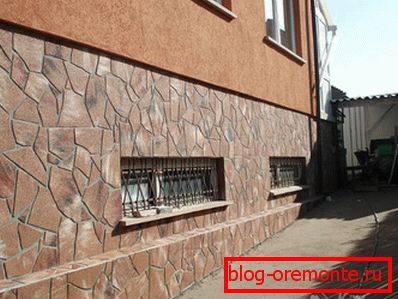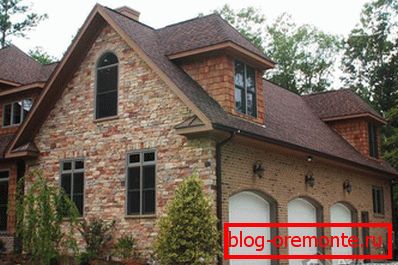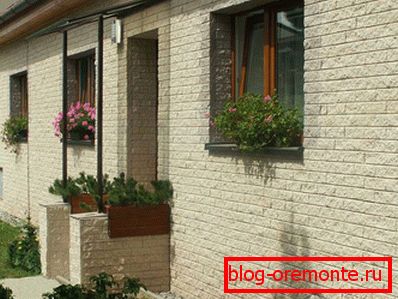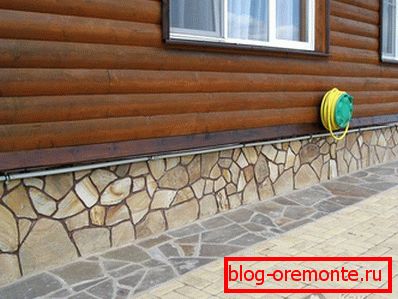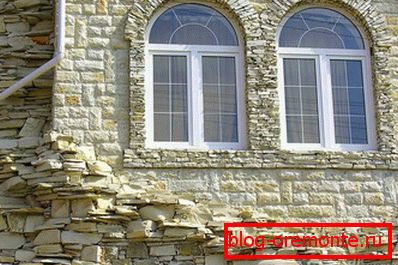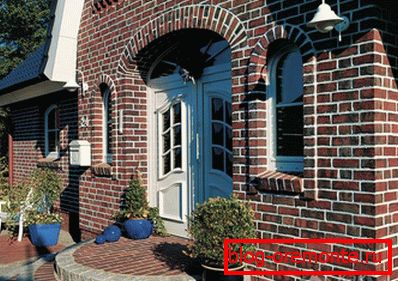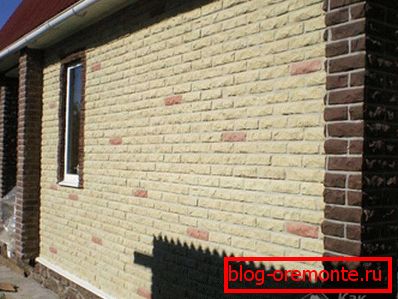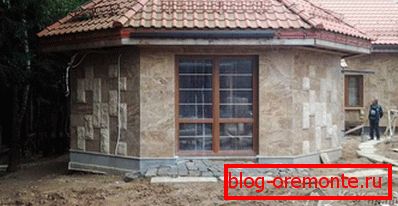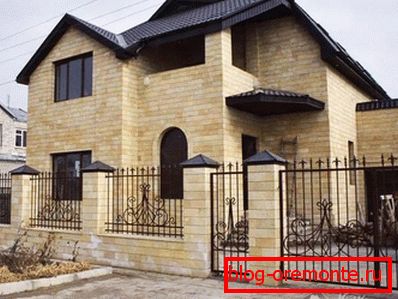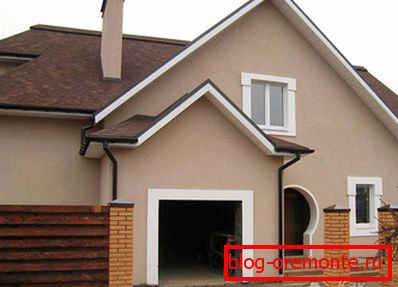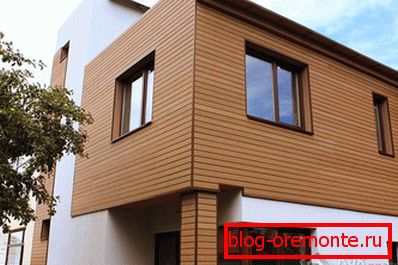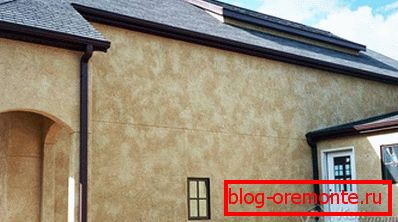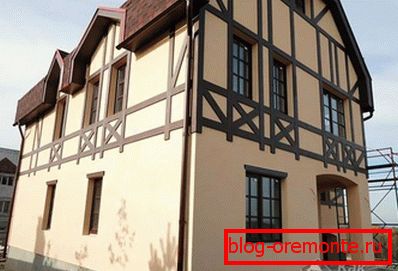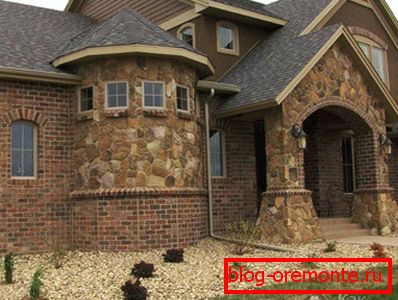How to decorate the facade of the house 2
Surely all the owners of private houses will agree that today, more than ever before, it is important than decorating the facade of the house. Chasing the stunning look of the house and exclusivity doesn’t make any sense.
In any case, it is important to keep the middle ground and the facade finish is also no exception. Without an objective assessment of the quality you should not choose budget material. Of course, carrying out these works will not be cheap in any case, however, you can choose a material that, with the same strength characteristics, will cost much less.
Competent approach to the choice of material
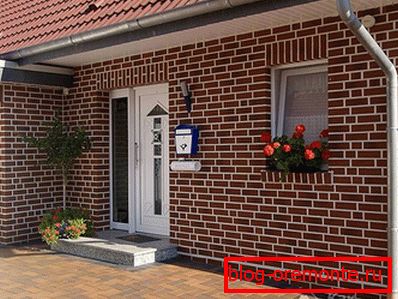
In order to make the right decision, which will be beneficial from the financial side, it is important to determine as precisely as possible the criteria that reveal both the advantages and the disadvantages of this or that material for finishing.
Pay attention to the already finished facade. Of course, the degree to which the lining is presentable depends largely on your personal preferences, which means that your own opinion cannot be objective. Consider the following parameters of the materials used:
- Resistance to visual defects and color fading.
- If you are thinking of purchasing an imitation product, then compare how similar it is to natural raw materials.
- The number of proposed textures and variations.
Facing material must be durable. It will be very unpleasant if a relatively inexpensive facade will need annual repairs. But, if the material that you liked, has a long life, then you are on the right track!
On all it is clear that the front material is not easy to choose. Having considered the pros and cons of different facing materials, you can understand which material will be more reliable and durable.
Types of panels for facade cladding and their features

There are 2 main types of panels for finishing the facade of the house, namely:
- Polyplan panels.
- Sandwich panels.
Polyplan consists of three layers. The top layer is made of varnished aluminum. Outwardly, it resembles plaster or wood. Polyplane protects the surface of the walls of the house from steam and heat. Polyurethane foam is an internal filling of the panel that provides thermal insulation. The inner layer consists of alloyed foil and plays the same role as the first layer. Polyplan is fastened vertically with the help of special locking profiles, called “Dolphin”. The joints are almost invisible, which protects the walls from ingress of precipitation inside.
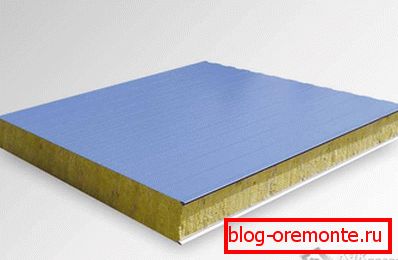
Sandwich panels are designed to finish the facade, they also consist of three layers. The upper and lower layers are made of metal sheets, and between them is insulation. Details are interconnected by hot pressing. Due to this, the material is characterized by reliability, durability and durability. As insulating material in the manufacture of sandwich panels can be used foam, mineral wool, fiberglass and polyurethane foam.
When choosing insulation material, it is important to consider the coefficient of thermal conductivity, because the higher it is, the worse the material retains heat.
This facing material can be smooth, decorative profiled or regular profiled. Sandwich panels are a simple, inexpensive and quick way to finish a facade. Its small weight will not render loading on the base. Among the shortcomings worth noting the vulnerability to damage to the appearance and freezing at the joints.
Reliable stone

Everyone knows that stone is the strongest and most reliable material, the longevity of which can be envied. For lining can be used natural and artificial stone. Incidentally, the latter in appearance and quality is not inferior to its natural counterpart by nothing, as evidenced by the photo.
Breed, texture, size and color of the stone is a matter of taste and the choice here is simply huge. It is worth considering that the houses, the facade of which is decorated with granite or diorite look monumental and strictly. While houses decorated with travertine or marble look more natural and less strict. Whatever stone you choose, the facade of stone will look original. The frost resistance of the material in our country should be a priority, due to the harsh winters that occur in our latitudes.
Natural stone is expensive, and its artificial counterpart is much cheaper. The texture, color and shape of the artificial stone is the most diverse. Advantages of the material: wear resistance, lightness and corrosion resistance.
Classic plaster

This type of finish is popular mainly because of the low cost of decorative and cement-sand plaster. In addition, this finishing material allows you to improvise with color, pattern and texture. It increases the insulation of the house and its fire resistance. The coating dries quickly, is not afraid of water and shock. Traditionally, plaster of cement and sand is used for plastering the facade, but along with it, decorative (bark beetle, lamb) and facade (acrylic, silicone) plaster are also used.
Cement-sand mixture consists, as the name implies, of cement and sand, as well as chemical additives. It copes with temperature extremes and high humidity. Acrylic plaster is the cheapest option for decorative plaster. It fits well on polystyrene foam, water resistant. With sudden temperature changes, there is a high probability that it will crack. Silicone plaster is more expensive. It is made from silicone resin. It is not afraid of direct sunlight, moisture resistant and durable. However, it is worth considering that the result of the work largely depends on the qualification of the plasterer. To cover always looked presentable, it is necessary to take care of him.
Ventilated facade
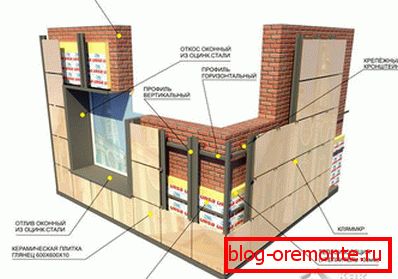
A ventilated facade is briefly described as a layer cake. Between the facing material and insulation there is air space. In fact, it is a hinged structure, installed at a certain distance from the wall, which allows you to finish the facade of a wooden house in this way.
Ventilated facade allows air. Moreover, the excess moisture is discharged into the ventilated area. Rising air flows to the outside.
For ventilated facade as a material for cladding, you can use different options. For example, it may be a low-weight aluminum composite sheet, or a heavyweight granite slab and other materials. Ventilated facades are distinguished by high energy-saving properties. They provide good noise and sound insulation. It is not necessary to trim the walls before installing the ventilated facade, while the mounted elements will hide all their irregularities and defects. If you want a modern and inexpensive veneer, then choose a ventilated facade.
Is siding good or bad?
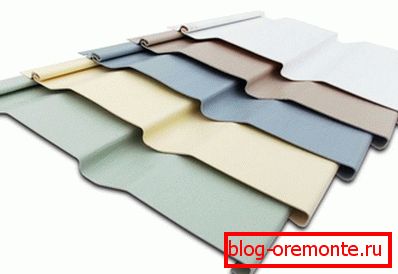
Siding, used for finishing the external walls of the house, is of two types - plinth and vinyl. In the arrangement of residential buildings is extremely rarely used aluminum siding. The main advantage of the material is ease of installation, safety and easy maintenance. The main drawback is that the material looks very artificial.
Although siding manufacturers claim that it can serve more than 45 years, in practice this is far from the case. In fact, it becomes brittle after frost, tends to fade and is unstable to deformation. Unfortunately, it is often possible to see that siding loses its positive characteristics after 5 years and becomes outwardly unappealing.
If you decide to install siding in the cold season, then you should take into account that it has a high rate of thermal expansion.
Wet facade
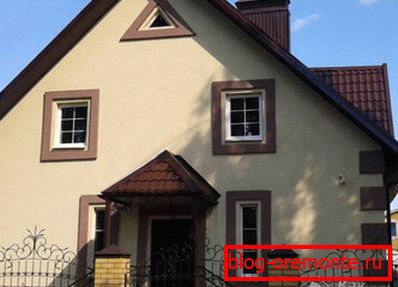
This is a multi-layered facade design. Each part plays an important role. It consists of 3 layers: a base reinforced layer, heat insulation and a decorative layer. With the help of a reinforced layer, you can even out the curvature of the walls and fix the insulating material. First, a grid is installed on the facade, to which an adhesive composition is subsequently applied. Foam polystyrene or mineral wool is most often used as thermal insulation.
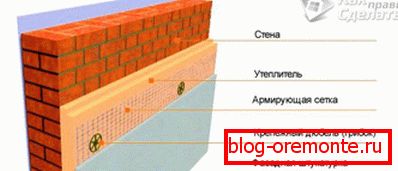
The decorative layer is made of mineral or silicone plaster. It protects the internal components of the wet facade and externally decorates the house.
See how to glue styrofoam:
Facade decoration block house
The lining imitating the rounded log is called a block house. The material is environmentally safe, because it is made from natural materials. A significant drawback is the high cost and comparative fragility, it is not refractory. All defects characteristic of wood may well manifest themselves at the block house.
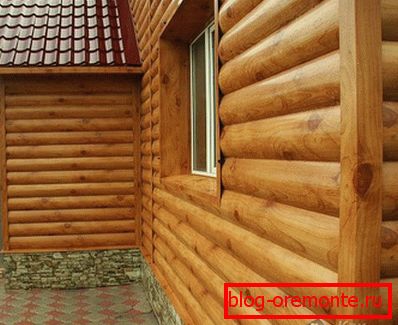
Externally, the house, decorated with a block house, looks very presentable. If you decide to purchase this material, then make sure that it is sufficiently dried, otherwise it may begin to rot after installation.
Since the block house is made of natural wood, it must be periodically covered with special protective compounds and opened with varnish or paint.
The better you take care of the facade, decorated with a block house, the longer it will serve you.
Quality and durability of facing bricks
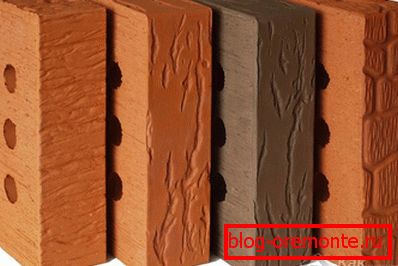
Ceramic bricks for cladding are made of clay using a special technology. It is very durable, distinguished by good sound insulation, frost resistance and low moisture absorption. The clinker brick is fired at higher temperatures than its counterpart in ceramics. The physical characteristics of clinker bricks are also higher than those of ceramic.
The material has a large range of colors, shapes and textures. The only drawback is the possible appearance of efflorescence. But for the most part residential buildings trimmed with clinker bricks look presentable for many years. In order not to strengthen the foundation, facing the facade with a brick needs to be planned in the process of designing a house.
Advantages and disadvantages of facade tiles
She is not afraid of moisture, is distinguished by reliability, durability and durability. If you lay the facade tiles qualitatively, it will provide a presentable appearance of the house. If the glue mortar is chosen correctly, then the facade tile will serve for more than a decade, without losing the original properties.
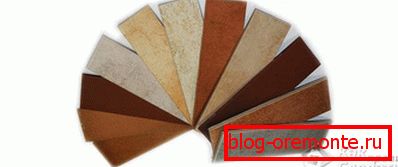
Among the shortcomings of the ceramic facade tiles it is worth noting the high brittleness before laying, the need for preliminary and very thorough preparation of the surface of the external walls of the house and a straight seam.
This article has reviewed many options for finishing the house, including those finishing materials that will cost the homeowner relatively inexpensively. The main thing is that your chosen house veneer will delight your eye for more than a decade. If you have any questions on the topic, then write comments.
A photo
